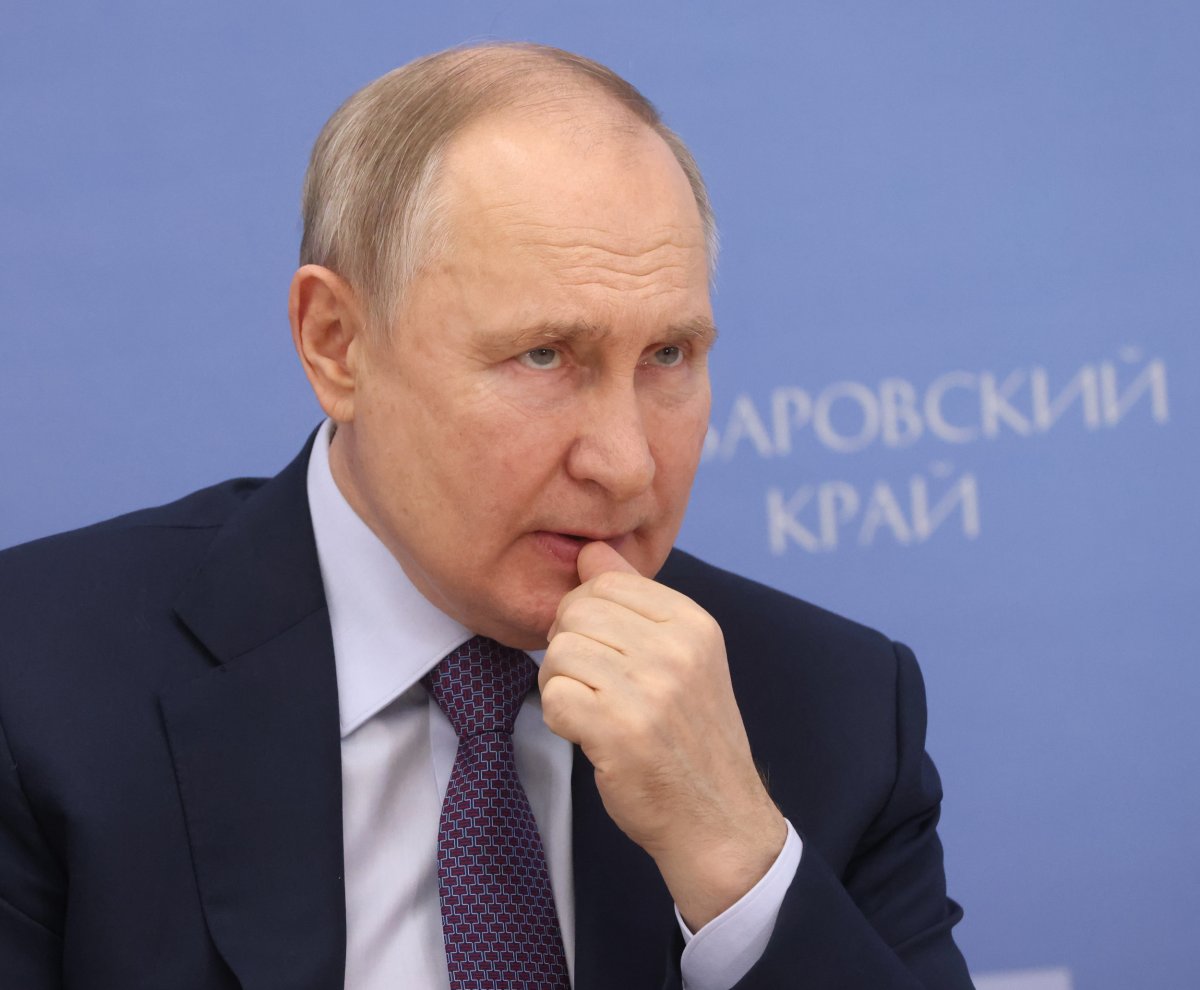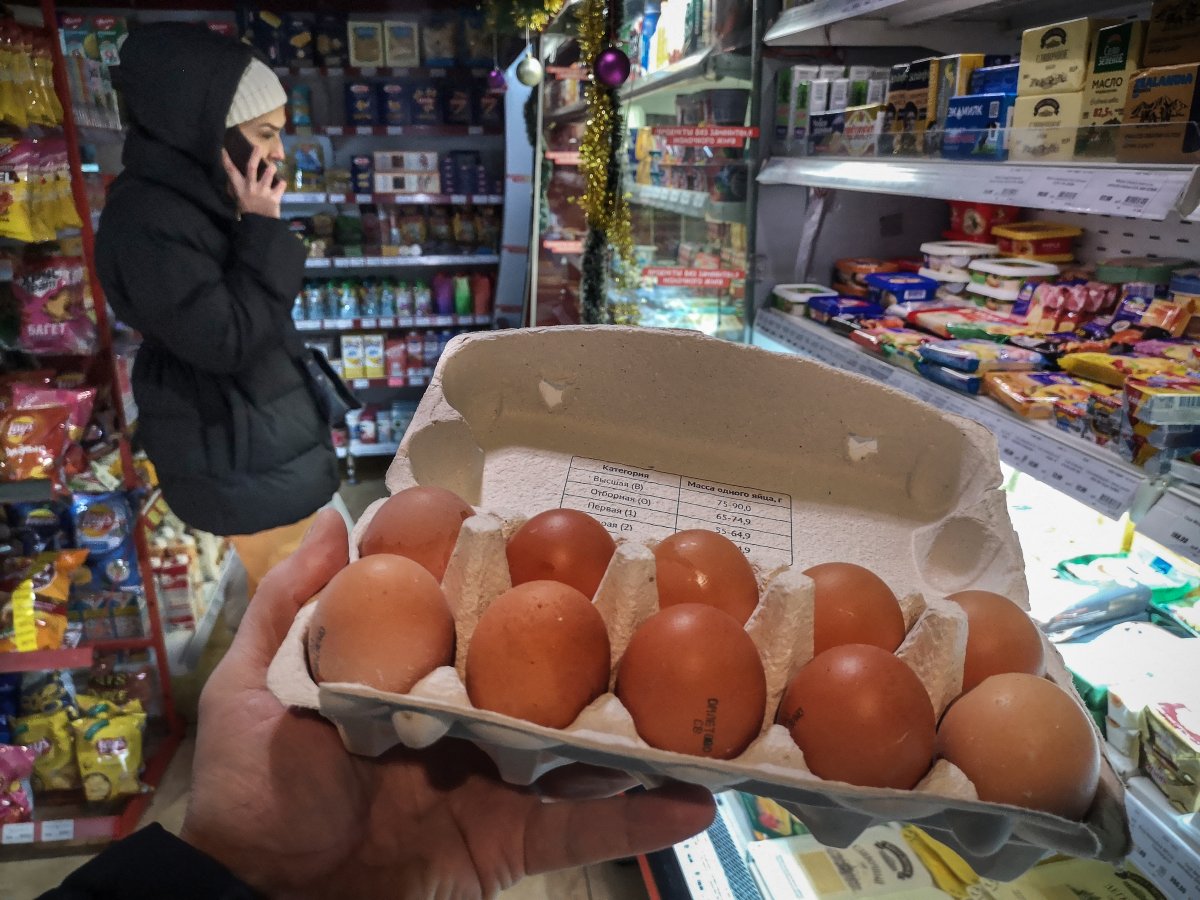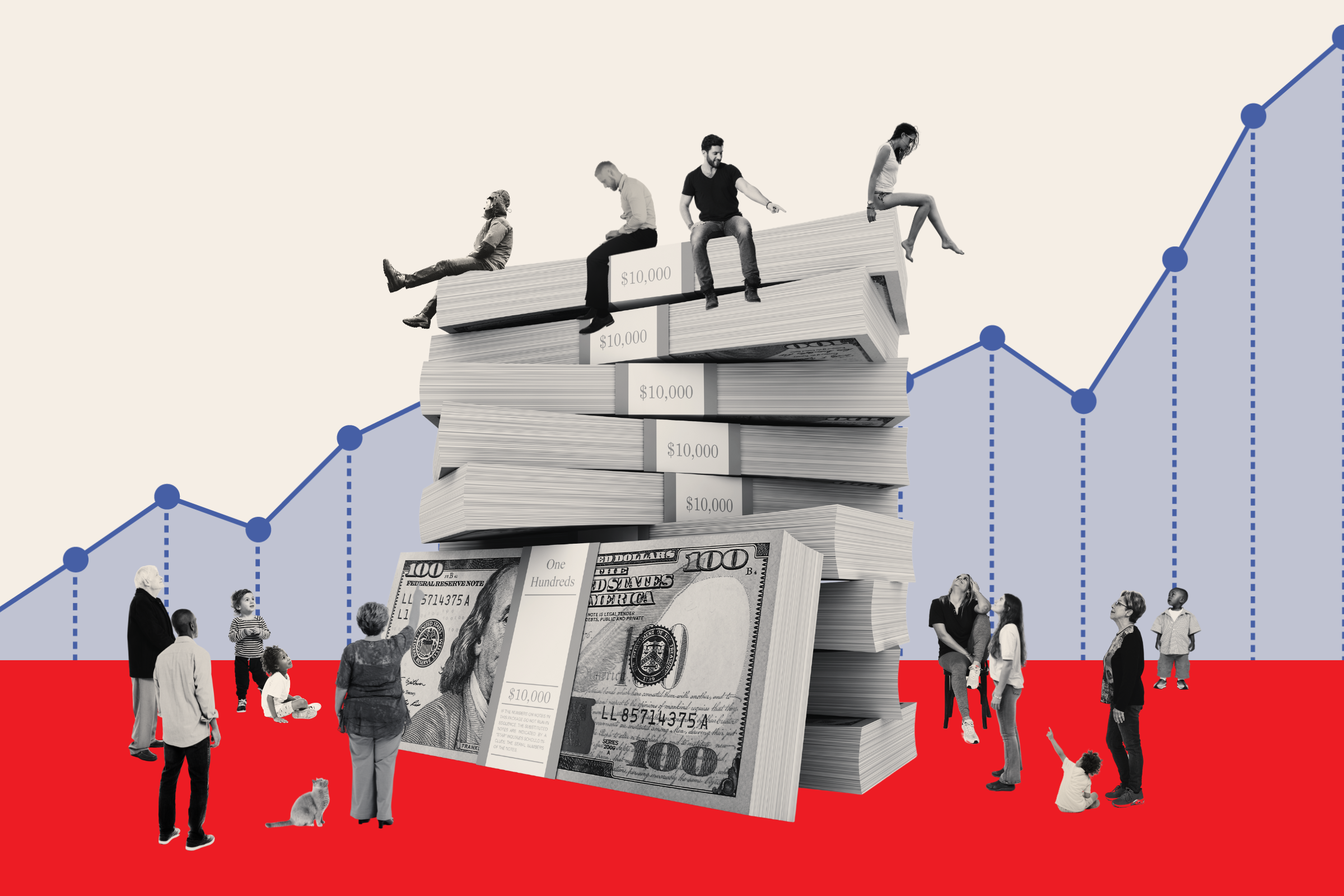Russia's egg shortage is being exacerbated by bird flu-riddled imports from Turkey, one of the country's biggest trading partners and a NATO member, according to a recent report citing a Russian government official.
More than one-fifth of the eggs imported from Turkey were found to be infected with the highly contagious H5N1 avian influenza, as well as other dangerous ailments including salmonella and botulism, Russian authorities warned.
The egg crisis has been spiraling out of control over the past few weeks, as the combination of high inflation and sanctions imposed by the West in response to President Vladimir Putin's full-scale invasion of Ukraine fueled an unprecedented jump in prices and localized shortages.

In November, egg prices rose by about 40 percent year-on-year, according to the Russian Federal State Statistics Service (Rosstat), and jumped a further 4.6 percent month-on-month in December.
Russia's attempt to pivot to Turkey for emergency egg supplies in January now appears to have backfired, as the delivery of the first batch of Turkish eggs was promptly followed by reports that about 20% of them may be infected with bird flu.
"The percentage is large. This is 10 out of 50—more likely than 6 out of 49 in the Sportloto [lottery[," Sergei Dankvert, the head of the Federal Agency for Veterinary and Phytosanitary Supervision, told the Siberian University of Consumer Cooperatives.
"It is necessary to ensure that there's no threat to the consumers. Of course, some of the products may already be sold. But the incubation period in most cases can be up to 21 days, so we are waiting. In the meantime, we are suspending sales to large retail chains," the official added.
Dankvert's comments were widely cited in Russian media outlets, including Newsland and Novosibirsk Bezformata. The original article has since been removed from the university's website, but an archived copy can still be accessed.
Meanwhile, Rosselkhoznadzor, the Russian consumer watchdog, also appealed to the public who purchased the products containing these eggs to immediately contact local authorities and send blood samples for appropriate tests, according to media reports.
The report notes that the entire 19.4-ton batch imported on January 3 through the Yarag-Kazmalyar checkpoint from Turkey is subject to seizure.
In response to a Newsweek inquiry, Rosselkhoznadzor's press office rejected the claims.
"The reporting in question contains deliberately false information. This fact will be investigated by the relevant authorities," the government watchdog told Newsweek in an email.
The scarcity of eggs and price hikes, partly caused by the rising costs of chicken feed and antibiotics previously imported from Europe, have become a major headache for Putin and his officials, while also fueling jokes and memes on Russian social media.
Alexander Lukashenko, the leader of Belarus and one of Putin's closest allies, appeared to tease the Russian leader over the deficit last month, when he pointedly named egg production as one of the pillars of Belarus' economy in his meeting with Putin.
The latter appeared to take the jibe in good humor, telling Lukashenko not to "hog the eggs," but the ongoing shortage of a vital foodstuff has remained a source of embarrassment for Putin's administration in recent weeks.
"We do help them, but they [Russians] still want more," — Lukashenko decided to sell eggs to Putin after all. https://t.co/k6tH967538 pic.twitter.com/BYfgdCx4Jd
— Anton Gerashchenko (@Gerashchenko_en) December 30, 2023
On Thursday, Putin was put in an awkward position, having to comment on the egg-flation at a major business forum, with his explanation for the crisis raising eyebrows.
"Our [egg] production didn't fall, but the demand has grown and we weren't able to adjust in time. As people's incomes have increased slightly, they began purchasing more eggs and chicken meat, driving up prices," Putin claimed at a meeting with entrepreneurs in the Far East.

Egg supply problems have fueled rumblings of discontent in the Russian population, with one local businessman even being targeted with an assassination attempt in late December.
Gennady Shiryaev, the 59-year-old head of the Tretyakov Poultry Farm, the largest in the western Voronezh region, was driving home when an unknown person fired two shots at his car. Shiryaev told Russian news outlet Kommersant that he wasn't injured in the assassination attempt.
An investigation has been opened into the incident.
Newsweek reached out to the Siberian University of Consumer Cooperatives for comment.
Update 01/12/24, 3:10 p.m.: This article was updated with comment from Russian consumer watchdog Rosselkhoznadzor.
Uncommon Knowledge
Newsweek is committed to challenging conventional wisdom and finding connections in the search for common ground.
Newsweek is committed to challenging conventional wisdom and finding connections in the search for common ground.
About the writer
Yevgeny Kuklychev is Newsweek's London-based Senior Editor for Russia, Ukraine and Eastern Europe. He previously headed Newsweek's Misinformation Watch and ... Read more
To read how Newsweek uses AI as a newsroom tool, Click here.






